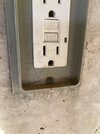Hello all. Have had the car a month now (M3LR). Was curious about actual range given I typical drive under 50 miles per day. So this morning I checked. I started at 82%, then drove 20 miles. No crazy acceleration. Half highway at 70mph and half rural at 45mph. Took 7% battery. So that's 285. Obviously I was never expecting to get 358 but this seems significantly lower. Questions:.
1. Is this a fair way to calculate or will battery drainage slow at say under 10% for awareness purposes so you have to drain fully to get actual range?
2. If the answer to the above is yes then disregard. If not, does this sound low to you? Worth investigating further?
So, to answer the "Worth Investigating further?" question.
It is emphatically YES.
Here's the thing. The stated range by Tesla is based on a set of not necessarily real world driving conditions. Anything you do outside of that very narrow criteria they used it determining that stated range will affect YOUR actual usable range.
For instance, drive faster than their test speed (don't recall offhand what that is, 48mph maybe??) and you take a range hit. Drive like 80mph and take a significant hit. Drive in the wind, take a hit. Drive in the rain, take a hit. Drive on a dirt road (probably take a hit, haven't read that one but could assume). Drive when it's cold, take a hit.
So it is important to understand how YOUR driving habits affect the range and estimate your charging needs / charging stops appropriately. Just walking out the door thinking you're going to get 350 miles every time isn't a good idea.
Basically, actual achievable range changes based on environmental factors and driving habits.
It's a lot like how my laptop said it could get 9 hours of use on a charge. Well, I've never seen anything over 4 hours based on how I use it.



